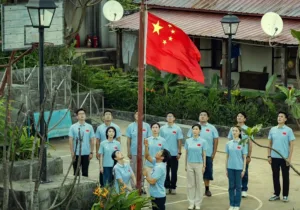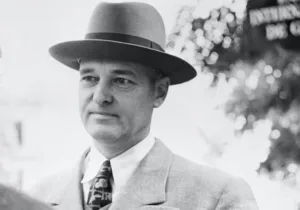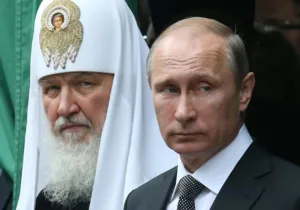Angola’s elections last week signaled the departure of Africa’s second longest serving leader, reminding me of an exhilarating 1986 dinner I attended with George H. W. Bush, Jerry Falwell, Jeane Kirkpatrick, and Angolan rebel chief Jonas Savimbi.
No, it wasn’t an intimate candlelight affair for the five of us but a hotel banquet for hundreds attending the annual Conservative Political Action Committee. President Reagan had spoken the night before, and the eve I attended, as a college student, Vice President Bush and Savimbi were the main speakers, with Falwell introducing Bush and Kirkpatrick introducing Savimbi.
Members of the Nicaraguan Contras and Afghan Mujahideen also attended, representing collectively with Savimbi the Reagan Doctrine, which backed these groups, plus anti-Marxist rebels in Cambodia, as part of global armed resistance to pro-Soviet regimes. Bush vigorously defended the doctrine in his speech. Kirkpatrick, always a dramatic orator, brought the crowd to its feet by insisting America should not just ship humanitarian aid to anti-Marxist rebel groups but also “real assistance” that meant “real weapons,” “real helicopters,” and “real ground-to-air missiles,” among other lethal items.
Savimbi also excited the crowd by explaining his fight against Angola’s communist regime might require his attacking the oil rigs of U.S. oil companies bankrolling that regime. The audience of conservatives loved the idea. Perhaps with Falwell on the platform in mind, Savimbi emphasized his education by Protestant missionaries and his mother’s piety. His father was a preacher. Rebutting allegations that he remained crypto-Maoist from earlier years when backed by China, he declared he was a Christian and Protestant. Again there were applause.
Savimbi’s UNITA group battled the MPLA regime from 1975, when the Portuguese abruptly evacuated their colony, until 2002, when regime forces killed Savimbi. The Soviets backed the MPLA, which included the dispatch to Angola of thousands of Cuban combat troops, who used chemical warfare against Savimbi’s forces. Initially the Ford Administration had backed anti-Marxist armed resistance in Angola until Congress, fretting over Vietnam-like involvements, prohibited such aid with the Clark Amendment, which endured nearly a decade until Reagan gained its 1985 revocation.
South Africa’s minority white regime also backed UNITA for years, sometimes with troops and air support, until it negotiated its Angolan withdrawal with the MPLA regime, which reciprocally agreed to discontinue aid to the African National Congress. Soviet Bloc aid to the MPLA also ended with the Soviet Union’s collapse, leading to a negotiated peace and 1992 elections. In the initial vote Savimbi trailed MPLA chief and Angolan President José Eduardo dos Santos, leading to a run-off election that was aborted by war’s resumption.
The U.S. after the Cold War lost interest in Savimbi, specifically protesting the murder of UNITA’s foreign minister and family, who reputedly were burned as witches, possibly on orders from Savimbi, who supposedly feared his opposition. Savimbi alleged the CIA, among others, had orchestrated the killings. Oil money for the MPLA, which had renounced Marxism-Leninism, and diamond money for UNITA sustained civil war until Savimbi’s own violent death, since which UNITA has participated in elections and served as an opposition party.
In failing health, Dos Santos is stepping down as Angolan president after 38 years, second only to Zimbabwe’s Robert Mugabe in current African governing longevity, and he has anointed his defense minister to succeed him. The MPLA as always easily won the latest election, but UNITA did better than average. Although no longer a Soviet-style one party dictatorship, Angola is not a functioning democracy. Freedom House ranks it as “not free,” with a score of only 24 out of 100. As is common in much of African politics, Dos Santos as ruler enriched himself and his family. His children occupy powerful and profitable positions, one daughter, who heads Angola’s oil conglomerate, maybe Africa’s richest woman.
Still, Dos Santos is retiring voluntarily, Angola is at relative peace, doctrinaire Marxism is gone, booming Christianity is no longer persecuted, and although the nation is still poor, its economy is likely stronger than ever before, though growth is threatened by reduced oil prices. The slated new president is described as a relatively non-corrupt technocrat, recently saying: “The law is for everyone.”
Hopefully Angola will continue economic growth and peaceful governance while transitioning to at least some additional political liberty and less corruption. Whatever its current travails, the present is superior to its years as a Cold War battleground, when its dramas were the featured course of a Washington banquet whose sparks still burn bright in my memory over thirty years later.







 Live in the DC area? Sign-up for Providence's in-person events list!
Live in the DC area? Sign-up for Providence's in-person events list!